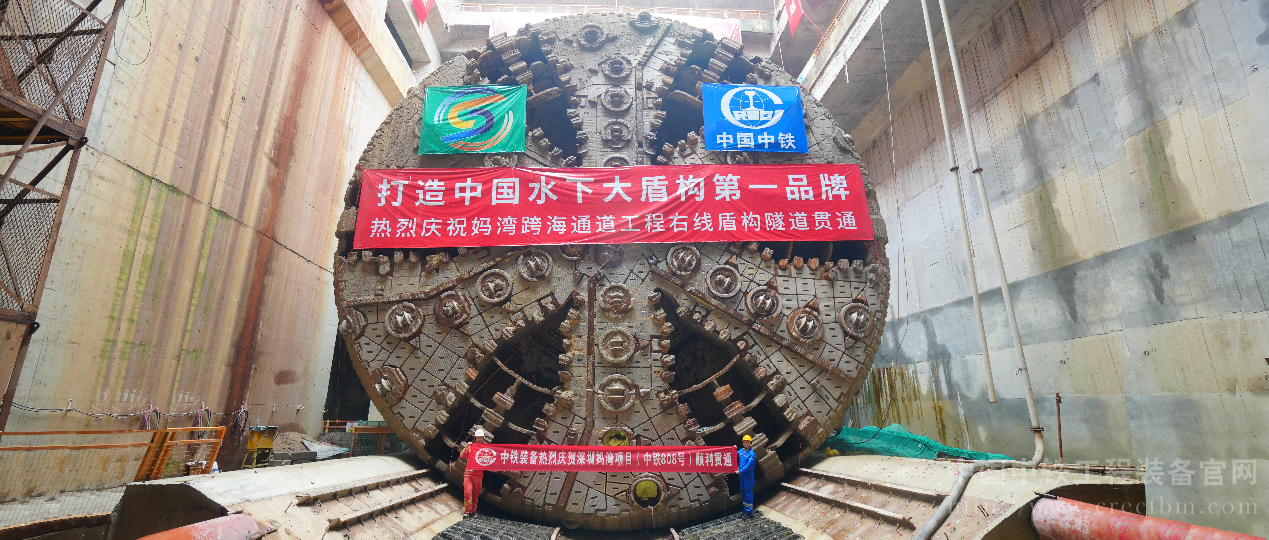Date: 2023-06-13
On June 9, a super-large diameter slurry TBM named "Mawan" developed by China Railway Engineering Equipment Group Co. Ltd. (CREG) successfully goes into a receiving shaft, completing its journey on the right line of Shenzhen Mawan Subsea Tunnel project. This is the second successful application of CREG's 15m super-large diameter TBMs in the construction of subsea tunnels after CREC 306 TBM broke through Shantou Gulf Tunnel, contributing to the construction of cross-river and cross-sea tunnels.

The project has a 2,063m long TBM drive, including a subsea section of 1,100m, which is crucial for the construction of the whole project and adopts "Mawan" customized by CREG to bore with a diameter of 15.53m and a total length of 140m.
During boring, “Mawan” overcame four major construction challenges. The first is long distance. The geological structure along the alignment is complex, including 50% of mix ground and 34.15% of full-face hard rock, which means the TBM needs to bore through a long-distance stretch of high-strength rock. The second is difficult construction. The complex terrain in the subsea section tends to cause the TBM to float and deviate from the designed route. There exists severe cutter wear and high risks of cutter change as well. The third is large overburden. The tunnel is located at a depth of more than 40m under the seabed, with a maximum water pressure of 5bar and a maximum rock strength of 193MPa. The fourth is large cross-section. The outer diameter of segment is over 15m,which poses extremely high requirements for machine performance and construction technique.
In view of the above difficulties and risks, “Mawan” was designed with multiple innovative technologies to effectively guarantee the construction progress and safety, and achieved a best monthly advance of 172m in mix ground and a best daily advance of 10m, setting a new record for daily advance of large-diameter subsea TBMs in China.
Shenzhen Mawan Subsea Tunnel is expected to be put into operation in 2024. It will play an important role in expanding the urban development space and promoting the transportation interconnectivity in the Guangdong-Hong Kong-Macao Greater Bay Area once completed.